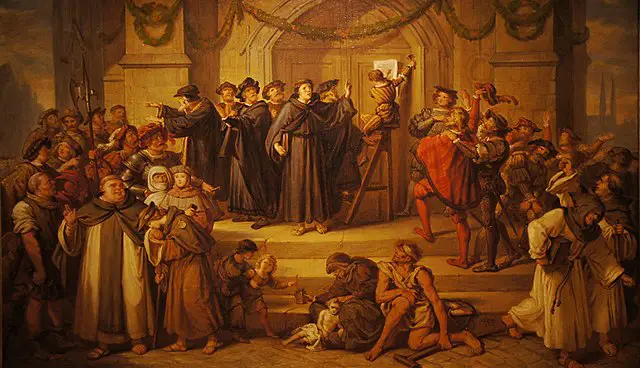
| Further Reading | Why The Treaty of Westphalia Is Significant To History |
In 1517 Martin Luther published a thesis attacking the process of selling indulgences by the Catholic Church. This publication sent shockwaves around Europe and sparked what is now known as the Protestant Reformation.
There are 3 major ways that Luther’s theses changed the world forever. First, Martin Luther’s theses attacked the very core of European medieval society. Second, Luther’s 95 Thesis demonstrated the power of the newly invented printing press. Third, Martin Luther’s work led to the creation of the modern nation-state.
Here at The History Ace, I strive to publish the best history articles on the internet. If at the end of this article you enjoyed it then consider subscribing to the free newsletter and sharing it around the web.
Further, you can check out some of the other articles below.
Martin Luther’s 95 Theses Challenged the Very Core of European Medieval Society
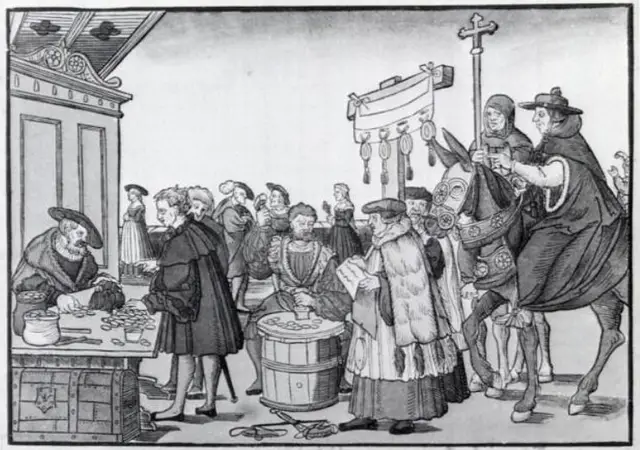
One of the major ways in which Martin Luther’s 95 theses changed the world was due to its direct attack against the very core of European Medieval Society.
For nearly 1,000 years the society of Europe revolved around the dominance of the Roman Catholic church. This religious institution managed to spread across Europe from eastern Germany to Spain and up to England. This Catholic church would be the ultimate power in the land and had the authority to install kings and lords into power.
The problem however was the cost to continue to run this massive bureaucratic institution. Along with large donations, the European church would also start to sell indulgences for money. A plenary indulgence is given out by a member of the clergy to absolve one of sins.
The problem was however up until this point most indulgences were forgiven by the clergy through small actions such as prayer or reading scripture. Sometime around the early 15th century the European church began to flat out sell these indulgences.
If you had committed a crime or sin you could pay your way out of the punishment. As you might imagine this started to cause a problem across segments of the European population who could not afford to pay for such indulgences.
Martin Luther published his 95 theses directly attacking this practice. He argued that there was no need to pay for these indulgences and that the very act of doing so was against the established doctrine of Christianity.
When Martin Luther published his work it sent shockwaves around Europe. People began to question the authority of the European church. This questioning of the church’s authority to rule caused European medieval society to begin to implode on itself and over the next 100 years wars would erupt across Europe as instability grew.
Martin Luther’s 95 Theses Demonstrated the Power of the Printing Press
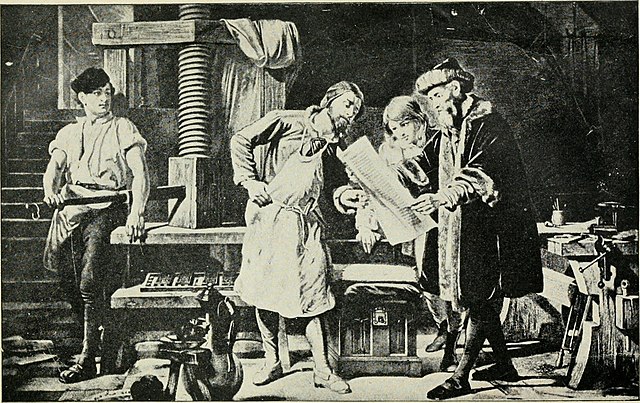
The printing press changed the world by making information easy to spread. This gave Luther the perfect medium to publish his 95 theses easily around the known world.
The printing press was invented in the middle of the 15th century. 70 years later Martin Luther would publish his 95 theses in an environment where printing press companies had spread across Europe. This created the perfect situation for Luther’s work to take advantage of the massive networks of literary people for 3 reasons.
First, the printing press gave Luther’s work the ability to be published in regional dialects. Before the printing press all books were published in Latin outside of a few examples. This was because books had to be copied by hand by medieval monks. The language of the elite and literary people across Europe was Latin, which the average person could not read or understand. The printing press gave Luther the ability to publish his work in many different languages so that everybody could read it.
Second, the printing press gave Luther the ability to escape the European church’s monopoly over the spread of information. Since the Catholic church held dominance over book production and universities they essentially controlled the spread of information. The printing press on the other hand was controlled by businesses and could easily print a book outside of the control of the Catholic church.
Third, the printing press gave Luther the ability to mass produce his work. Books before the printing press would take between 3-10 months on average to hand copy. The Printing Press could copy thousands of books during the same time. This meant that Luther’s work could easily be spread around the known world rapidly.
These 3 reasons allowed Martin Luther to spread his work around Europe. As a result of this one of the main ways in which Martin Luther’s 95 theses forever changed the world was by demonstrating the power of the printing press to easily spread information to the masses.
Martin Luther’s Work Lead to the Creation of the Modern Nation State
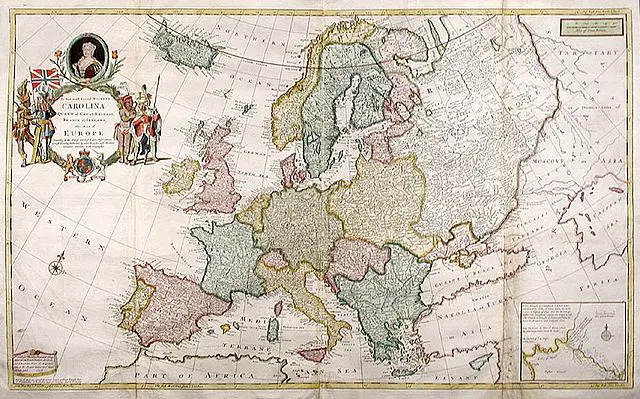
One of the main ways in which Martin Luther’s 95 Theses changed the world was by leading to the creation of the modern nation-state.
When Martin Luther published his work it essentially denounced the European church; the nucleus of medieval European society. Now people did not have to pay the church to secure their religious happiness within Europe, in theory they already had it pre-built in from thousands of years ago.
As a result of this people started thinking of different ways in which society could operate. From the mid-16th century up until 1648 with the Treaty of Westphalia there was constant infighting and religious turmoil over how society should be structured and operate.
These wars often revolved around either Protestants or Catholics attempting to gain power over their region in Europe. England saw a civil war, France went to war with Spain over Dutch territory, and Germany saw massive internal fighting over religious dominance.
All of this eventually culminated with the Treaty of Westphalia in 1648 which finally created the law that each ruler could determine the religion of their own territory and the government of their subjects. As part of this treaty the reigning monarchs of Europe each drew their borders on the map; this was the creation of the modern nation-state.
This all started with the publication of Martin Luther’s 95 theses. This is because Martin Luther started the snowball effect that lead to nearly a century of infighting over religious rights and government across Europe. Today when you have to cross a border to visit another country thank Martin Luther for helping to create the need to establish them.
Conclusion
There you have it; an entire article going over the 3 ways in which Martin Luther’s 95 theses changed the world forever.
The study of the protestant reformation is an amazing subject of research. Many people are not aware of just how important this event was to the creation of the modern era. Any prospective students of history will find substantial amounts of possible research looking into this field.
I hope you enjoyed this article. Here at The History Ace I strive to publish the best history articles on the Internet. Feel free to subscribe to the newsletter and share it around the web.
Further, you can check out some of the other articles below.
-
How The American Revolution Changed The World
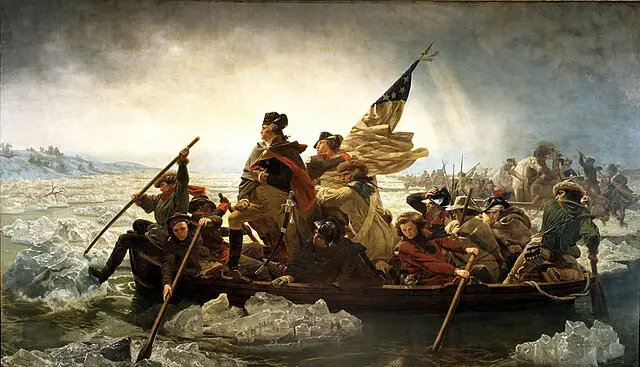
Here is how the American Revolution changed the world. Many people are not aware of just how important this event actually was.
-
Why The Roman People Loved Chariot Racing
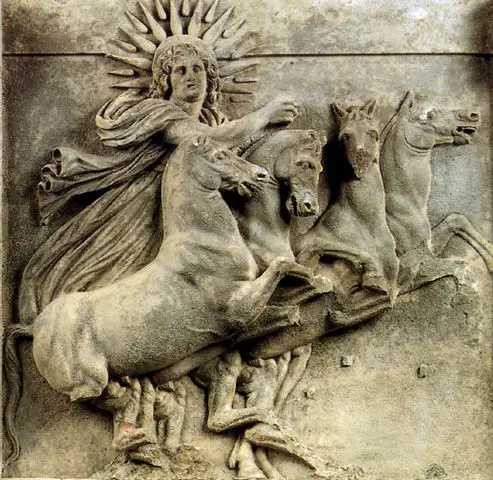
Why did the Roman people love chariot racing? Well it all comes down to these 3 reasons.
-
The Design and Color of Roman Chariots
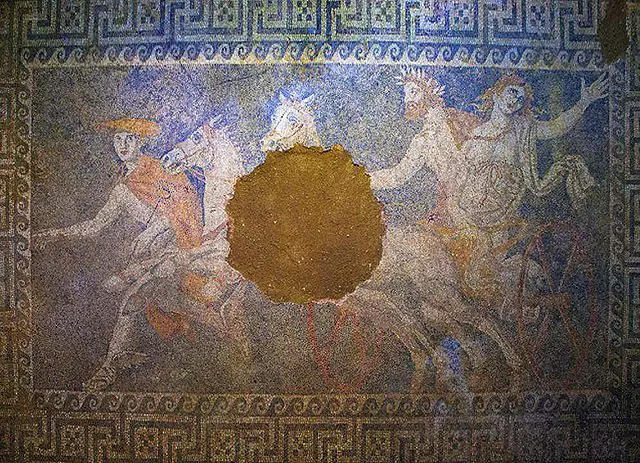
What was the design and color of Roman Chariots? Were they faster or slower then normal chariots? Well here is everything!